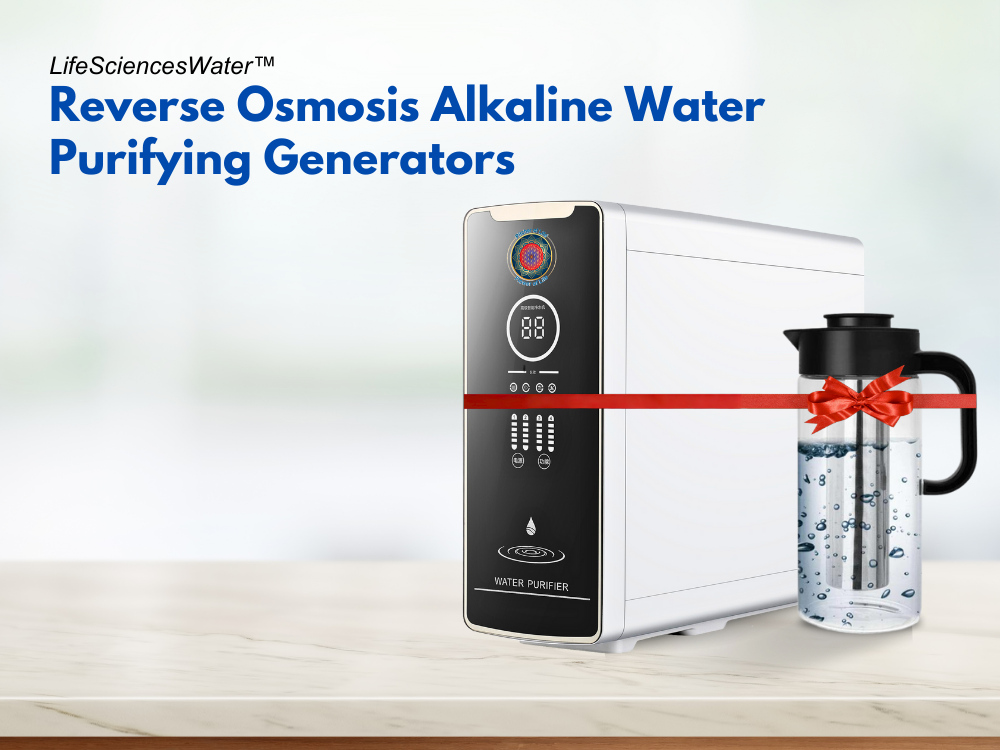What are PFAS?
Per- and poly-fluoroalkyl substances (PFAS), commonly referred to as “forever chemicals,” are a group of thousands of synthetic substances that permeate our environment. These chemicals are resistant to degradation, making them persistent in the environment and in human bodies. PFAS are notorious for their association with various health issues, particularly those affecting reproductive and developmental health.
Reproductive Health Impacts
The link between PFAS exposure and reproductive health issues is well-documented. For both men and women, PFAS can interfere with hormonal balances, leading to significant reproductive challenges. Women may experience irregular menstrual cycles, early onset of menopause, and fertility issues, while men may suffer from reduced sperm count, poor sperm quality, and lower testosterone levels. These disruptions highlight the urgent need to address PFAS contamination in our environment.
Routes of PFAS Exposure

Drinking Water
One of the primary routes of PFAS exposure is through drinking water. Industrial discharges, landfill leachates, and runoff from firefighting foams contribute to the contamination of groundwater and surface water sources. As a result, PFAS can infiltrate public water systems, posing a widespread risk to public health.
Food Chain
PFAS have the ability to bioaccumulate in the food chain. Contaminated water sources can affect crops and livestock, leading to PFAS presence in various food products such as fish, shellfish, meat, dairy, and vegetables. Consuming these contaminated foods allows PFAS to enter our bodies, exacerbating exposure.
Consumer Products
Everyday items such as non-stick cookware, water-resistant clothing, and stain-resistant carpets can contain PFAS. Regular use of these products can result in significant exposure through inhalation, ingestion, or skin contact.
Occupational Exposure
Workers in industries that manufacture or use PFAS are at a higher risk of exposure. Inhalation, ingestion, and skin contact with PFAS during production processes can lead to substantial health risks for these individuals.
Minimizing Exposure: Practical Steps
Product Avoidance
- Opt for Non-Stick Alternatives: Choose cookware made from stainless steel, cast iron, or other PFAS-free materials.
- Select PFAS-Free Food Packaging: Avoid packaging that contains PFAS, such as certain fast-food wrappers and microwaveable popcorn bags.
- Beware of Anti-Stain Fabrics: Avoid clothing and textiles labeled as water or stain-resistant unless they are certified PFAS-free.
Careful Food Choices
- Choose Fish Wisely: Select fish with lower PFAS levels, and be cautious about sourcing seafood from contaminated areas.
- Maintain Clean Hands: Wash hands thoroughly before eating to minimize inadvertent ingestion of PFAS from contaminated surfaces.
Water Testing and Treatment
- Test Drinking Water: Use certified laboratories to test water for PFAS contamination.
- Install PFAS-Removing Filters: Consider using advanced filtration systems to reduce PFAS levels in drinking water.
Water Filtration Systems
- Coconut Carbon Filters: Activated carbon derived from coconut shells is effective in adsorbing various PFAS compounds. Its high surface area and porosity enhance its ability to purify water. While coconut carbon filters significantly reduce PFAS levels, they may not completely eliminate all compounds.
- Certified Filtration Media: NSF-certified coconut carbon filters meet rigorous standards for safety and reliability, ensuring comprehensive water purification.
Advanced Purification Systems:
Two recommended systems, the Hydrogen Alkaline Bio-Energy Water System and Reverse Osmosis Alkaline Water Purifier, stand out by removing 13 to 20 times more toxins than standard filters. These purifiers not only address PFAS but also provide enhanced hydration, making them ideal choices for those prioritizing both health and water quality. Elevate your water purification experience with Pitcher of Life’s Purifiers.

The Life Sciences™ Hydrogen Alkaline Bio Energy Water System, is a cutting-edge water purification solution. Its five-stage filtration includes a coconut-activated carbon filter and an alumina and bone char filter specifically designed to remove PFAS compounds, ensuring your drinking water is free from harmful contaminants. This system enhances water taste, reduces scale buildup, and promotes overall health with alkalized and antioxidant-rich water. Backed by a lifetime warranty, it’s a reliable investment in your well-being.

Introducing the Life Sciences™ Reverse Osmosis Alkaline Water Purifying Generator, a state-of-the-art system that redefines water purification this premium-quality, tankless technology-driven device removes up to 98% of contaminants, delivering mineralized alkaline water with over 40 health benefits.
The five specialized filters are designed to target PFAS compounds specifically, ensuring a thorough removal process while maintaining essential mineral content.
Our dedication to providing a high-quality solution for PFAS removal is combined with a commitment to affordability. Priced at only $697, this investment is not just a purchase; it’s a conscious choice for a healthier, PFAS-free water source.
To understand the extent of PFAS contamination in your water, visit Life Water Report for a free analysis of your EPA-mandated water report. This comprehensive testing reveals the presence of various toxins, many of which lack legal limits.
Conclusion: Ensuring Safe Drinking Water
PFAS in drinking water threaten reproductive health. By adopting proactive measures—such as avoiding PFAS-containing products, making informed food choices, and utilizing advanced water filtration systems—we can protect our health and mitigate the risks associated with these persistent chemicals. Regular water testing and effective filtration methods are crucial steps toward ensuring a safe and healthy environment for all.
